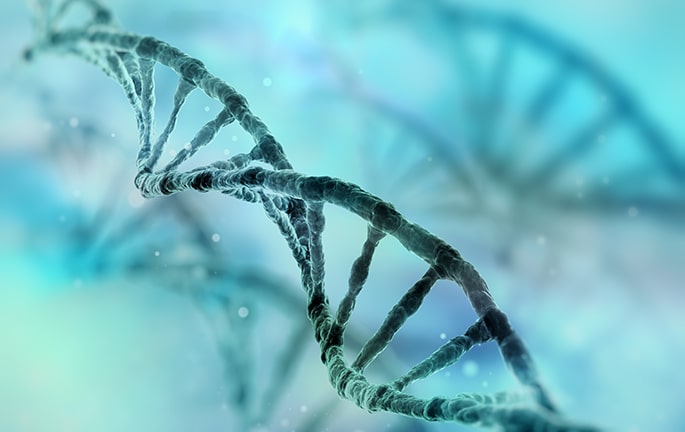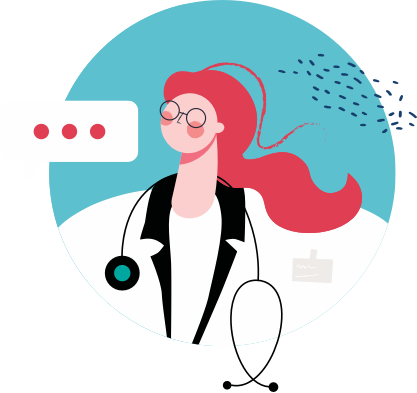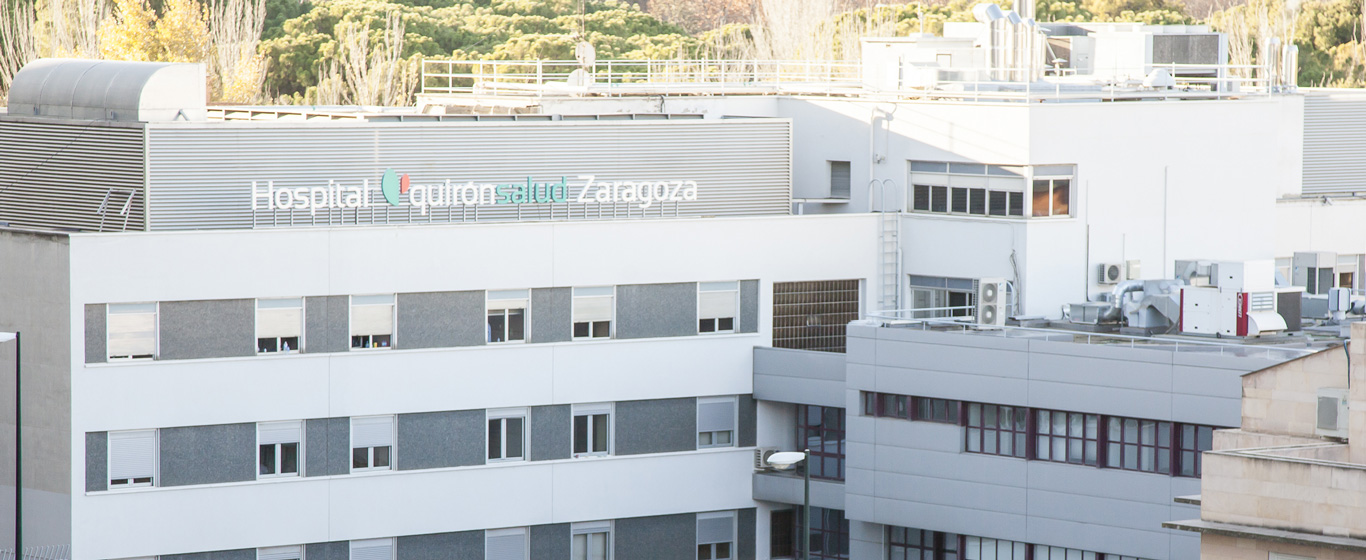Genetics
We tell you everything you need to know about genetics and its contribution to medicine. Find out about its main areas of study, the benefits it offers patients, the most common genetic diseases and the most frequently performed tests. Book your consultation at one of our hospitals.

What is genetics?
As its name suggests, genetics focuses on the study of genes, which are responsible for transmitting hereditary information from one generation to the next. This speciality is developed as a cross-cutting biomedical area that centres on the prevention, diagnosis and treatment of hereditary or genetically-based diseases. It is also a relevant area of research. The analyses and tests carried out by geneticists help us understand how certain pathologies develop in our patients so that we can carry out preventive work, maintain monitoring and, where necessary, carry out personalised treatment for each patient.
What does genetics study?
As mentioned above, genetics studies biological inheritance, researches how genes transmit this information, and delves into the causes of genetic diseases.
Humans have around 22,000 genes in our genome. Pathological variations (variants) in just one of these genes can cause a purely hereditary or monogenic or Mendelian disease. About 5000 of these genes are involved in the cause of about 7000 monogenic or genetic diseases.
Genetic diseases affect about 7-8% of people. They can appear at birth (congenital) or later in life. And they may have been transmitted from one or both parents or appear de novo.
In addition, small variations in many genes, combined with environmental factors, favour the onset of diseases that are not genetic in nature, i.e. polygenic risk for common diseases. These studies are still under development and require further scientific validation to apply them to diagnosis.
In its medical application, this speciality is divided into two main areas:
- Genetic counselling: this focuses on studying how a pathology is transmitted from one generation to the next. By means of a clinical assessment and the performance of certain tests, a genetic alteration that could lead to a disease in the medium or long term can be ruled out or diagnosed at an early stage.
- Genetic testing: involves specific tests that provide information on the presence or absence of genetic variants that may cause, or be related to, hereditary problems in the patient, and which are essential for the diagnosis and prevention of genetic alterations.
Thanks to the conclusions resulting from these two areas, it is possible to better understand certain pathologies, determine the actual possibility of a person suffering from a hereditary disease, find treatments that minimise the risks and offer advice to help patients make decisions.
Which patients is it for?
Genetics is aimed mainly at two different types of patients. On the one hand, it treats people with genetic diseases and offers them personalised diagnosis, monitoring and treatment. Quirónsalud also works on the detection and prevention of future pathologies in asymptomatic patients, carrying out tests on people with a family history of congenital diseases or possible genetic causes to rule out or diagnose their presence and also to determine the likelihood of manifesting said diseases in the future. Geneticists often advise couples of reproductive age on the risks of transmitting hereditary pathologies to their offspring.
Techniques, procedures and diagnostic methods
Genetic testing has become highly specialised in recent years due to technological advances and increased scientific studies. Of the tests carried out by Quirónsalud geneticists, the following stand out:
Screening
- Non-invasive prenatal test: a high-precision test that detects the risk of the baby having chromosomal alterations, by studying foetal DNA obtained from a maternal blood sample.
- Screening for carriers of genetic diseases (preconception)
Genectic Studies for Risk of Developing Common Diseases
- Alzheimer’s genetic test: detects the presence or absence of the E4 allele of the APOE gene, which relates to the onset of Alzheimer’s disease.
- Early detection of cancer: non-invasive screening test for early detection of colon, breast or ovarian cancer.
Diagnostic Genetic Testing
- Blood karyotyping: examines the shape, size and number of chromosomes to detect possible infertility-related alterations.
- Cytogenetic studies: cCGH, optic genome
- Genetic sequencing study: single gene or mutation, or mass sequencing
- Methylation studies
Diseases and symptoms
Main pathologies and diseases
Some of the most frequent syndromes and genetic diseases are:
Chromosomal diseases or Aneuploidy:
- Down syndrome or Trisomy 21
- Triple X syndrome
- Turner syndrome
- Klinefelter syndrome
Chromosome microdeletion syndromes:
- Williams syndrome
- Prader-Willi syndrome (can also occur due to other causes (dysomy, impaired methylation)
Monogenic or Mendelian diseases
- Haemophilia
- Tourette syndrome
- Neurofibromatosis
- Noonan syndrome
- Retinitis Pigmentosa
- Marfan syndrome
- Polycystic Kidney Disease
- Inherited arrhythmias
- Inherited Cardiomyopathy
Symptoms related to genetic diseases
The most representative symptoms of genetic diseases include:
Malformations, neonatal presentation
- Delayed physical development
- Overgrowth
- Delayed intellectual development
- Convulsions
- Attention deficit
- Hyperactivity
- Anaemia, early onset low Haemoglobin, unexplained haemorrhagic disease
- Early onset heart failure, with no environmental causes
- Balance issues
- Early, severe deafness
- Severe or progressive visual impairment
About the genetics consultation
We solve any doubts you may have before you see the specialist
At Quirónsalud, our genetics consultation specialists focus their efforts on treating and trying to anticipate genetically based alterations and diseases that may affect the health of patients with a view to preventing them and avoiding complications and effects on both our patients and other family members, as well as finding the most suitable, personalised treatment. For this reason, we sometimes carry out group testing among members of the same family.
What should you keep in mind?
The first step is to take the patient’s clinical history, as in any other speciality. Genetics pays special attention to family history and the family tree, as some diseases are more frequently transmitted when they originate from certain ancestors. Then, when necessary, a physical examination is performed and specific tests are ordered.
Two major legally binding processes take place during your first appointment: genetic counselling and informed consent for testing. During these processes, the patient or their relative is informed about the possible test results, the consequences for the patient or their family members and the possible options, as well as their willingness to know the results and what kind of results they are expecting.
Finally, and usually at a subsequent appointment, the results are assessed and post-test genetic counselling is provided, regardless of whether the results are going to affect a future baby or if they are to be used to help establish suitable follow-up for the patient’s own disease.
What should I take to the appointment?
We advise that you come to the appointment with a detailed list of both your personal and family medical history to help the specialist provide you with a more personalised assessment. Bringing with you any previous genetic studies of both the patient or a relative, if available, is also of great help for the specialist to make a more accurate diagnosis.
You may receive a questionnaire a few days before your appointment asking about your medical history, usual medication and other specific questions that will allow us to anticipate certain aspects of your consultation, helping us expedite your treatment and offer you a more personalised care. To do this, we recommend that you download the free Quirónsalud Patient Portal application, which will facilitate communication with your healthcare team.

If you have any further questions, please contact us through the Patient Services telephone number: 900 301 013

























































